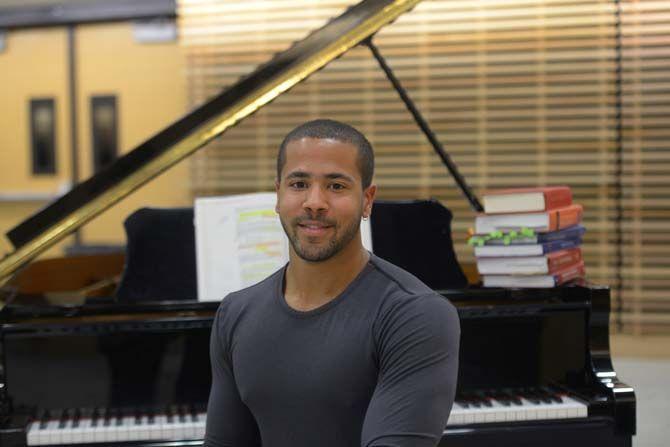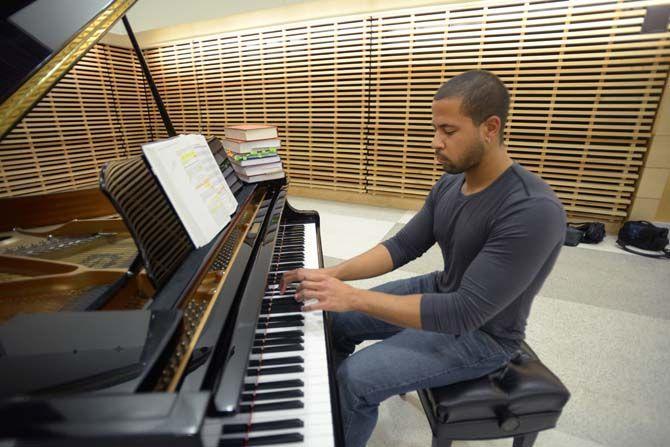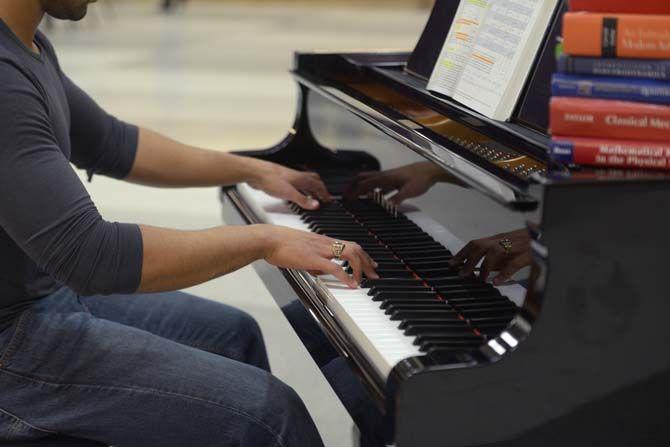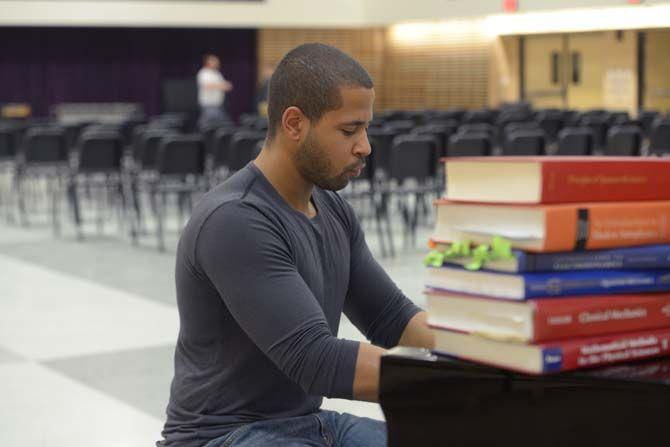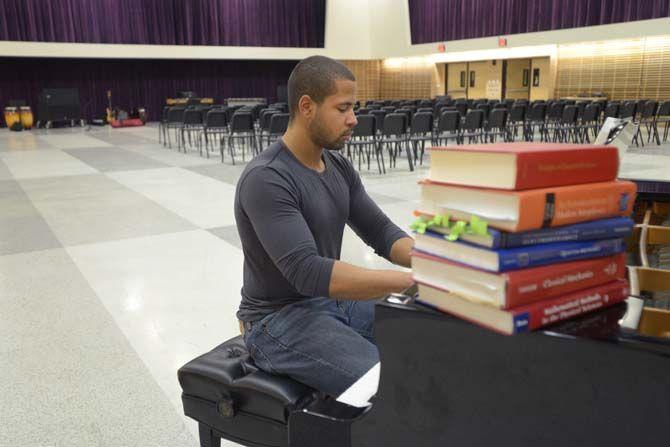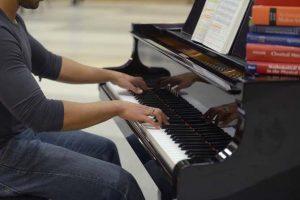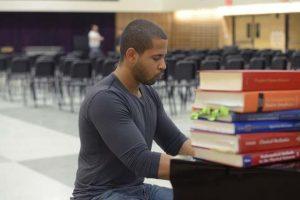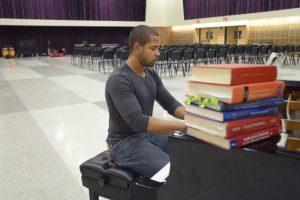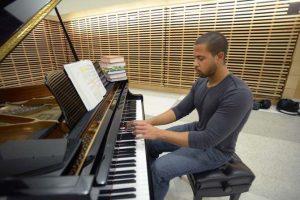Physics senior Nigel Payne hopes the skills he learned from Tiger Band will make his U.S. Navy officer application hit all the right notes.
Payne began the application process for the Navy’s Nuclear Propulsion Officer Candidate Program in November. If accepted, the Navy would finance the rest of his undergraduate degree, and he would become a nuclear officer after graduating in May 2016.
“I decided to be a physics major with aspirations of someday going to graduate school for nuclear engineering,” Payne said. “Before I heard about this program, I was going to try to apply for graduate school in my last couple of years at [the University] with my physics degree. With this program, I’d be getting nuclear training from the Navy, and it would give me work experience.”
When he’s not working on academic assignments, Payne is a section leader for the trumpet section of Tiger Band and the Bengal Brass Band.
Along with the trumpet, Payne plays the piano and composes arrangements the Bengal Brass Band plays during basketball games. The most recent arrangement was for Mark Ronson’s hit song, “Uptown Funk,” Payne said.
“I don’t know where I would be if it weren’t for my involvement with the band,” Payne said. “[Tiger Band] requires a lot of time, and it can be rough sometimes to manage it all, but you just have to man up and do your homework on the road. For me, it’s all worth it because music and physics play such a vital role in my life.”
Payne first joined Tiger Band during his freshman year and became section leader his junior year.
Payne said he believes the leadership skills he’s learned as a section leader gives him a leg up in the NUPOC application process, because as a navy officer, his primary job would be to lead his division.
“[Payne] leads a lot by example,” said marketing senior and trumpet co-section leader Jordan Koenig. “He’s one of the best players in the section, so people can look to him to see what they’re supposed to do. Pretty much everyone that knows him looks up to him as a great dude.”
For a program applicant to be selected, he or she must undergo a rigorous screening process, according to the Navy’s website. Then, he or she is selected to travel to Washington, D.C., for a personal interview.
The first part of the interview process examines the applicant’s knowledge of calculus, physics and other technical courses. Once the applicant passes the test, he or she meets with Adm. John M. Richardson, the current director of the Naval Nuclear Propulsion Program, for a final test. Richardson chooses the prospective officers personally.
As a nuclear officer, Payne hopes to hop aboard a submarine or surface warship as the officer in charge of the nuclear propulsion division, which powers the ship.
“[Nuclear science] is the study of nuclei and how they have so much potential to release energy,” Payne said. “Too many people have the wrong idea about nuclear power. There’s a negative connotation because of the bombs [the U.S.] dropped on Japan and the accident in Fukushima. But when you could use that energy to power cities, I think looking into nuclear power as an energy source is the way to go.”
Payne said he hopes to either work in the Navy until he retires or manage his own nuclear power plant design company once his nuclear science education is finished.
After retiring, his long-term plan is to return to school for a piano performance degree.
Payne submitted his background information for the position and is expected to undergo his physical test in the coming weeks.
Tiger Band leader hopes to gain nuclear science experience in Navy
February 5, 2015
Section leader and physics senior Nigel Payne in the Tiger Band Hall on Feb. 4, 2015, is applying to the NUPOC program to become a Nuclear Officer in the navy.


